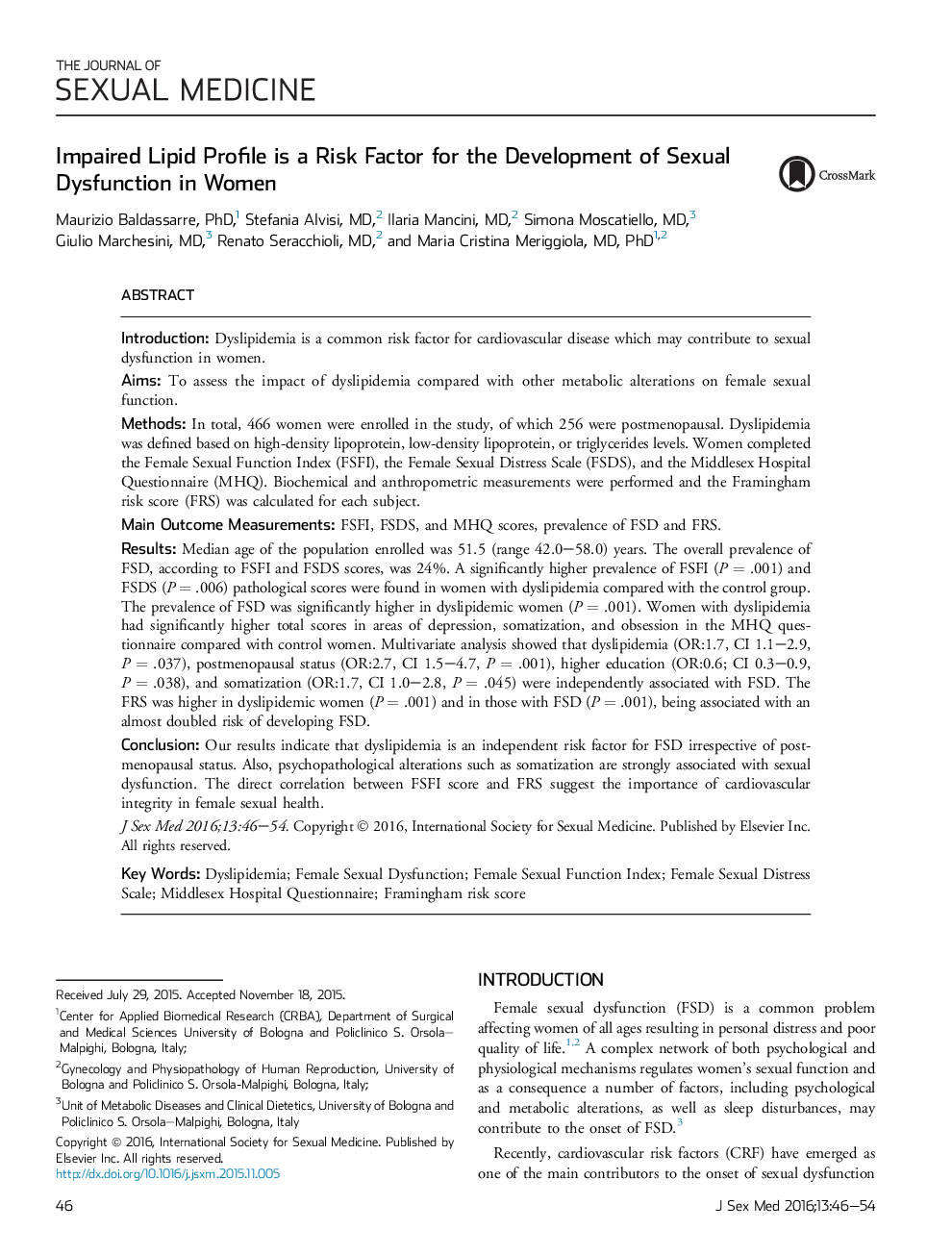| Article ID | Journal | Published Year | Pages | File Type |
|---|---|---|---|---|
| 4269476 | The Journal of Sexual Medicine | 2016 | 9 Pages |
IntroductionDyslipidemia is a common risk factor for cardiovascular disease which may contribute to sexual dysfunction in women.AimsTo assess the impact of dyslipidemia compared with other metabolic alterations on female sexual function.MethodsIn total, 466 women were enrolled in the study, of which 256 were postmenopausal. Dyslipidemia was defined based on high-density lipoprotein, low-density lipoprotein, or triglycerides levels. Women completed the Female Sexual Function Index (FSFI), the Female Sexual Distress Scale (FSDS), and the Middlesex Hospital Questionnaire (MHQ). Biochemical and anthropometric measurements were performed and the Framingham risk score (FRS) was calculated for each subject.Main Outcome MeasurementsFSFI, FSDS, and MHQ scores, prevalence of FSD and FRS.ResultsMedian age of the population enrolled was 51.5 (range 42.0–58.0) years. The overall prevalence of FSD, according to FSFI and FSDS scores, was 24%. A significantly higher prevalence of FSFI (P = .001) and FSDS (P = .006) pathological scores were found in women with dyslipidemia compared with the control group. The prevalence of FSD was significantly higher in dyslipidemic women (P = .001). Women with dyslipidemia had significantly higher total scores in areas of depression, somatization, and obsession in the MHQ questionnaire compared with control women. Multivariate analysis showed that dyslipidemia (OR:1.7, CI 1.1–2.9, P = .037), postmenopausal status (OR:2.7, CI 1.5–4.7, P = .001), higher education (OR:0.6; CI 0.3–0.9, P = .038), and somatization (OR:1.7, CI 1.0–2.8, P = .045) were independently associated with FSD. The FRS was higher in dyslipidemic women (P = .001) and in those with FSD (P = .001), being associated with an almost doubled risk of developing FSD.ConclusionOur results indicate that dyslipidemia is an independent risk factor for FSD irrespective of postmenopausal status. Also, psychopathological alterations such as somatization are strongly associated with sexual dysfunction. The direct correlation between FSFI score and FRS suggest the importance of cardiovascular integrity in female sexual health.
